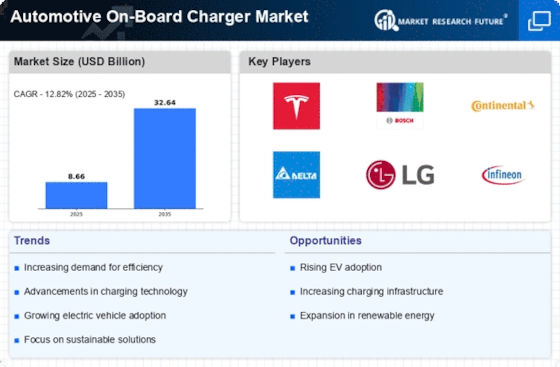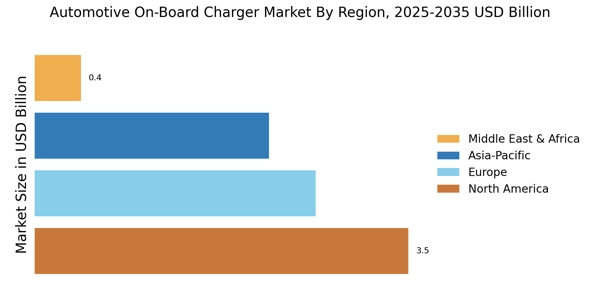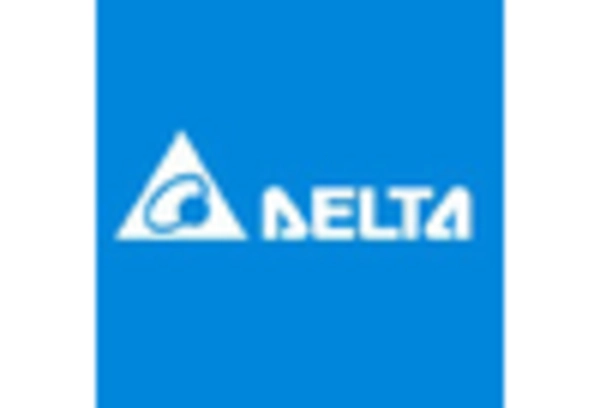Consumer Awareness and Education
Increasing consumer awareness regarding the benefits of electric vehicles is driving the Automotive On-Board Charger Market. As individuals become more informed about the environmental and economic advantages of EVs, their willingness to invest in on-board charging solutions grows. Educational campaigns and marketing efforts by manufacturers and governments are playing a pivotal role in this regard. By 2025, it is anticipated that consumer knowledge about charging technologies and their importance in the EV ecosystem will significantly enhance market dynamics, leading to a higher adoption rate of advanced on-board chargers.
Rising Demand for Electric Vehicles
The increasing consumer preference for electric vehicles (EVs) is a primary driver of the Automotive On-Board Charger Market. As more individuals seek sustainable transportation options, the demand for efficient charging solutions has surged. In 2025, it is estimated that the number of electric vehicles on the road will exceed 30 million, necessitating advanced on-board charging systems. This trend indicates a shift in consumer behavior towards eco-friendly alternatives, thereby propelling the market for on-board chargers. Furthermore, government incentives and policies promoting EV adoption are likely to enhance this demand, creating a robust market environment for manufacturers of on-board chargers.
Government Regulations and Incentives
Government regulations aimed at reducing carbon emissions are significantly influencing the Automotive On-Board Charger Market. Many countries have implemented stringent emission standards, compelling automakers to integrate efficient on-board charging systems in their electric vehicles. Additionally, various incentives, such as tax rebates and subsidies for EV purchases, are encouraging consumers to opt for electric vehicles, thereby increasing the demand for on-board chargers. By 2025, it is projected that regulatory frameworks will continue to evolve, further supporting the growth of the on-board charger market as manufacturers adapt to comply with these standards.
Growing Infrastructure for EV Charging Stations
The expansion of charging infrastructure is a vital driver for the Automotive On-Board Charger Market. As more charging stations are established, the convenience of owning an electric vehicle increases, which in turn boosts the demand for on-board chargers. In 2025, the number of public charging stations is expected to reach over 1 million, facilitating easier access for EV owners. This growth in infrastructure not only alleviates range anxiety among consumers but also encourages automakers to invest in advanced on-board charging technologies, thereby fostering a competitive market landscape.
Technological Advancements in Charging Solutions
Technological innovations play a crucial role in shaping the Automotive On-Board Charger Market. The development of fast-charging technologies and improved battery management systems has led to more efficient on-board chargers. For instance, advancements in semiconductor technology have enabled the production of compact and lightweight chargers that can deliver higher power outputs. As of 2025, the market is witnessing a shift towards ultra-fast charging solutions, with some chargers capable of replenishing an EV battery to 80% in under 30 minutes. This evolution not only enhances user convenience but also drives the overall growth of the on-board charger market.

















